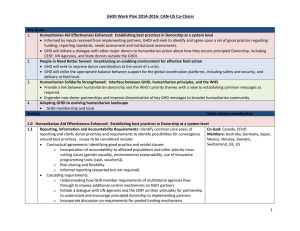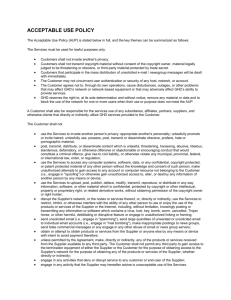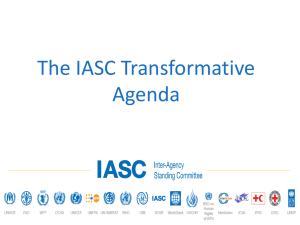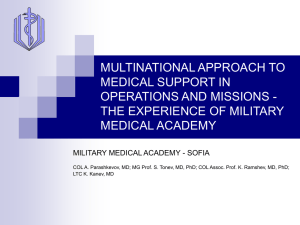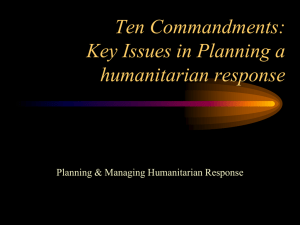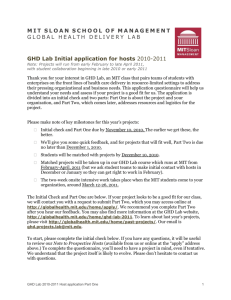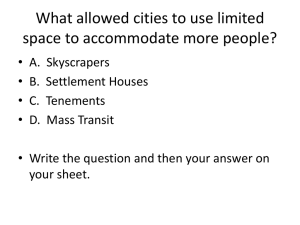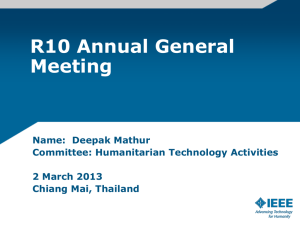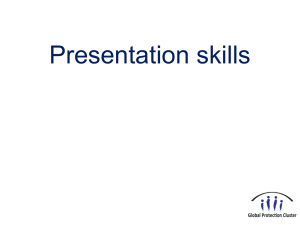HEALTH DIPLOMACY IN HUMANITARIAN ACTION - ghd-net
advertisement
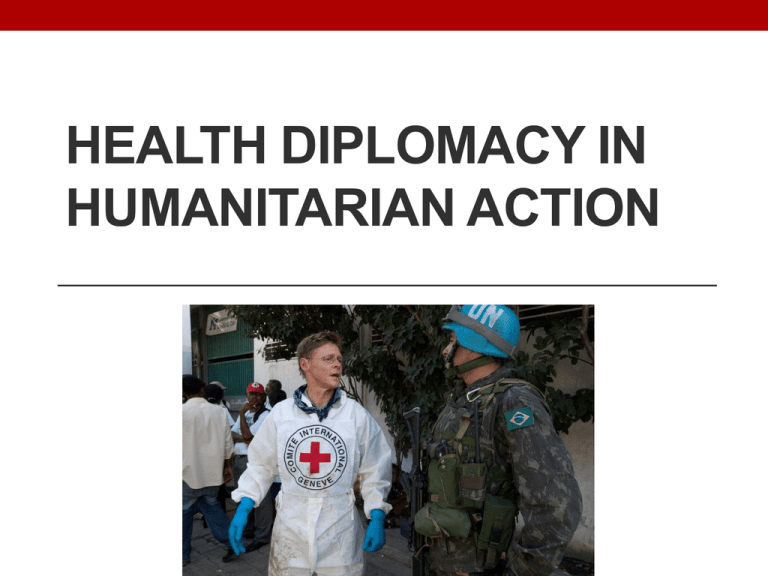
HEALTH DIPLOMACY IN HUMANITARIAN ACTION Lessons for Global Health Diplomacy? • GHD: Little discussion or focus on humanitarian assistance; • Humanitarians: little focus on diplomacy – norms not negotiable. Multiple forums, Multiple actors • Diplomacy, negotiation, and dialogue at international, national and local levels is integral to humanitarian action, including delivery of medical assistance. • Example of diplomacy in Haiti . . . . . . Clinton at Haiti UNSC Meeting . . . Clinton at Haiti Donor Meeting . . . Clinton at IHRC . . . Clinton and Farmer . . . Haiti health cluster discussions . . . Haiti community level dialogue Key Research Question • Does GHD provide insight into the factors that impede or facilitate cooperation – access to and delivery of medical assistance - during humanitarian crises? Research Overview • Examined health diplomacy within humanitarian settings: 1. Identified determinants of cooperation from GHD; 2. Exploratory case study research; 3. Assessed lessons of these case studies for GHD research. Case Studies • Haiti: Earthquake • Burma/Myanmar: ongoing civil strife and Cyclone Nargis; • Pakistan: Ongoing civil strife and 2010 floods; • Libya: Current internationalized civil war. Access/Delivery Restricted • Haiti least problematic; Pakistan more troublesome, Burma/Myanmar extremely difficult, and Libya almost impossible. • Traditional arguments of humanitarian space and advocacy for norms does not explain why and how cooperation is impeded. • GHD framework provides this insight. Determinants of Cooperation Actors Context Process GHD Context Influences Cooperation ✔ ✖ Political, Social, Economic Context Unique Nature of Health ✔ International Norms Actors Influence Cooperation ✔ Nature of the state ✔ International Organizations ✔? Civil society/Non-state actors ✔ ? Epistemic Communities Process Influences Cooperation ✔ ✔? Instrumentalization Diplomatic Skills Forum Shifting Significance for GHD • Not all health issues provide unique opportunities for engagement; • Importance but limitations of norms; • Role of international organizations as forum and actor; • Civil society critical diplomatic actor; • Risks of instrumentalization; • Role of diplomatic skills. Conclusions • GHD framework facilitated broader analysis of determinants of cooperation in humanitarian settings. Future Research • Health diplomacy in humanitarian settings appropriate case study for GHD: • Epistemic communities – what role do they play in humanitarian cooperation? • Local civil society groups – positive and negative influences? • Do humanitarian outcomes shift across forums – local/regional/int’l? Does this undermine norms?
